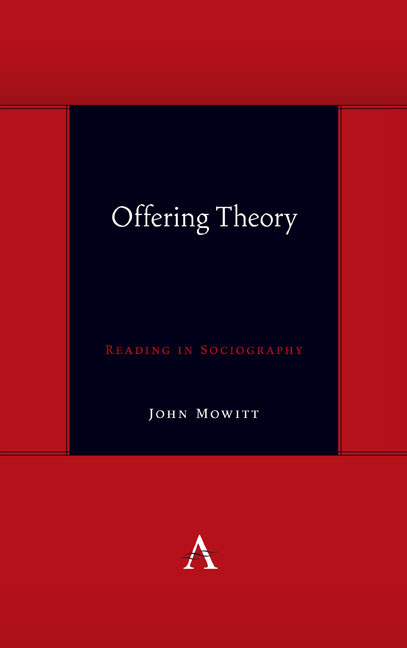Book contents
- Frontmatter
- Dedication
- Contents
- Acknowledgments
- The Pretext
- Introduction: Theory in Limbo
- 1 Queer Resistance: Foucault and the Unnamable
- 2 Stumbling on Analysis: Psychoanalysis and Everyday Life
- 3 Strangers in Analysis: Nationalism and the Talking Cure
- 4 “Jamming”
- 5 WWJD?
- 6 What Said Said
- 7 Apart from Theory
- 8 Conclusion: Theory Is Out There
- References
- Index
- Frontmatter
- Dedication
- Contents
- Acknowledgments
- The Pretext
- Introduction: Theory in Limbo
- 1 Queer Resistance: Foucault and the Unnamable
- 2 Stumbling on Analysis: Psychoanalysis and Everyday Life
- 3 Strangers in Analysis: Nationalism and the Talking Cure
- 4 “Jamming”
- 5 WWJD?
- 6 What Said Said
- 7 Apart from Theory
- 8 Conclusion: Theory Is Out There
- References
- Index
Summary
As noted, the when and where of Theory cannot evade the question of context. If, as has been posited, the “sociographic” is to serve as the means by which to designate a re:worked concept of context, then the issue of how it figures in the reading that is Theory calls for clarification, perhaps even justification. To open this line of reflection I turn to another theoretical occasion. Read on.
In 1986 at the Institute for Education in London the trajectory mapped in Edward Said's “Traveling Theory” reached if not its terminus then certainly its re- culmination. It did so because at the Institute Said and Raymond Williams, long fellow traveling companions, appeared together to comment on two films— one by Mike Dibbs, The Country and the City, the other by Geoff Dunlap, The Shadow of the West— inspired by their works. The transcript of this encounter appears as the final chapter of The Politics of Modernism, a book published a year after Williams's death in 1988. If I reinvoke “Traveling Theory” it is not simply because Said situates Williams's project there in a provocative, indeed telling way, but because the book in which it appears, The World, the Text, and the Critic (WTC), from 1983 served as the context for the exchange between Williams and Said. Because the theoretical problem of the relation between what both men refer to as representation and history figures centrally in their remarks, the matter of context imposes itself on the event of this exchange and asks to be read. The relation between representation and history is thus both the object and the very medium of this exchange. As such, it directs initial attention to the matter of historical context, especially since, as I will argue, what Said said about it is more subtle than has yet been acknowledged, especially by those who find in his work a justification for their own need to vulgarize the relation between representation and history. Indeed, the matter may have been more subtle than Said himself realized, suggesting that in pondering his legacy and the legacy of the discursivity he helped found, postcolonial studies (referring here back to Iser's propositions), the matter of history- as- context has a special claim to urgency as it was left, as it were, unsaid.
- Type
- Chapter
- Information
- Offering TheoryReading in Sociography, pp. 119 - 140Publisher: Anthem PressPrint publication year: 2020



